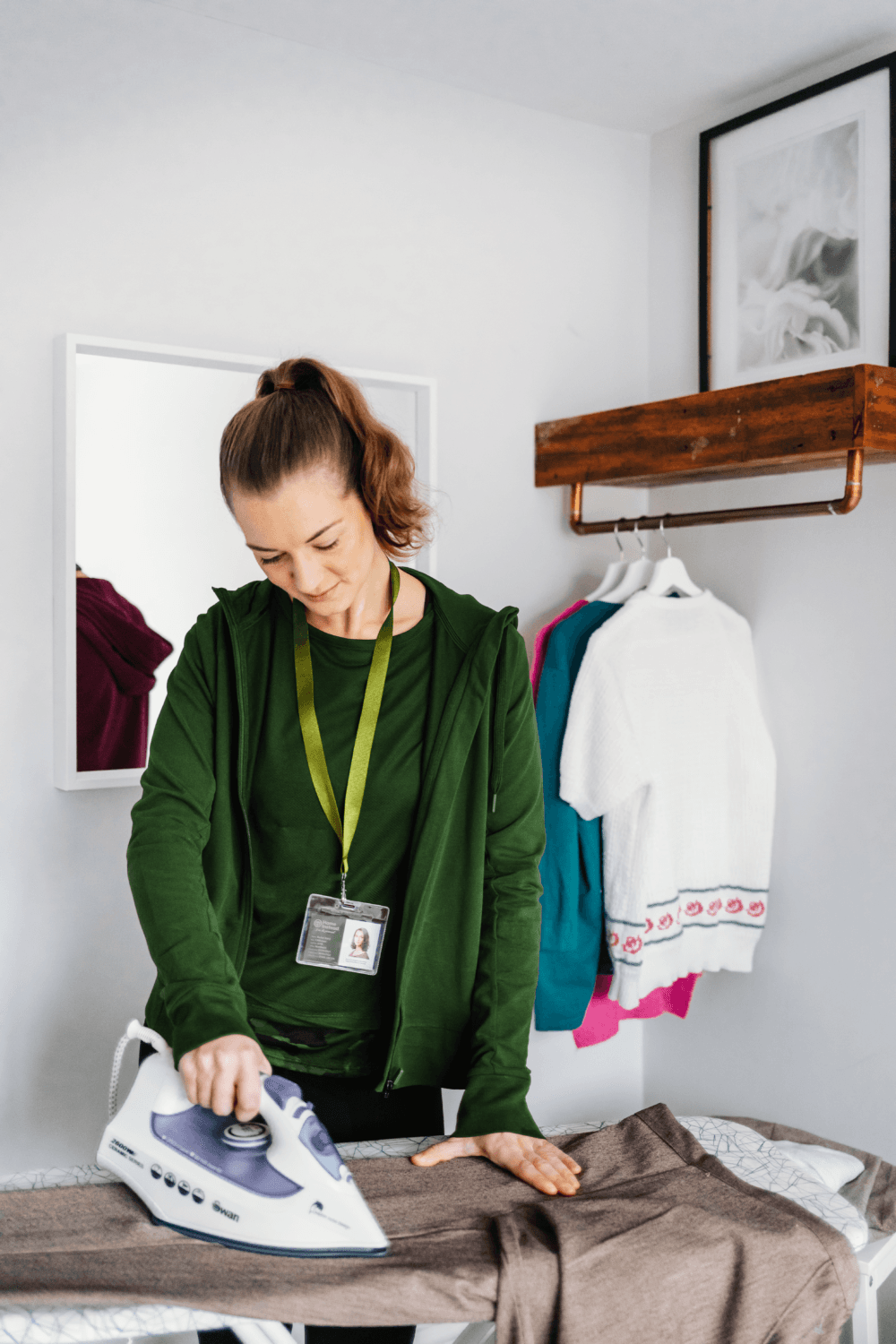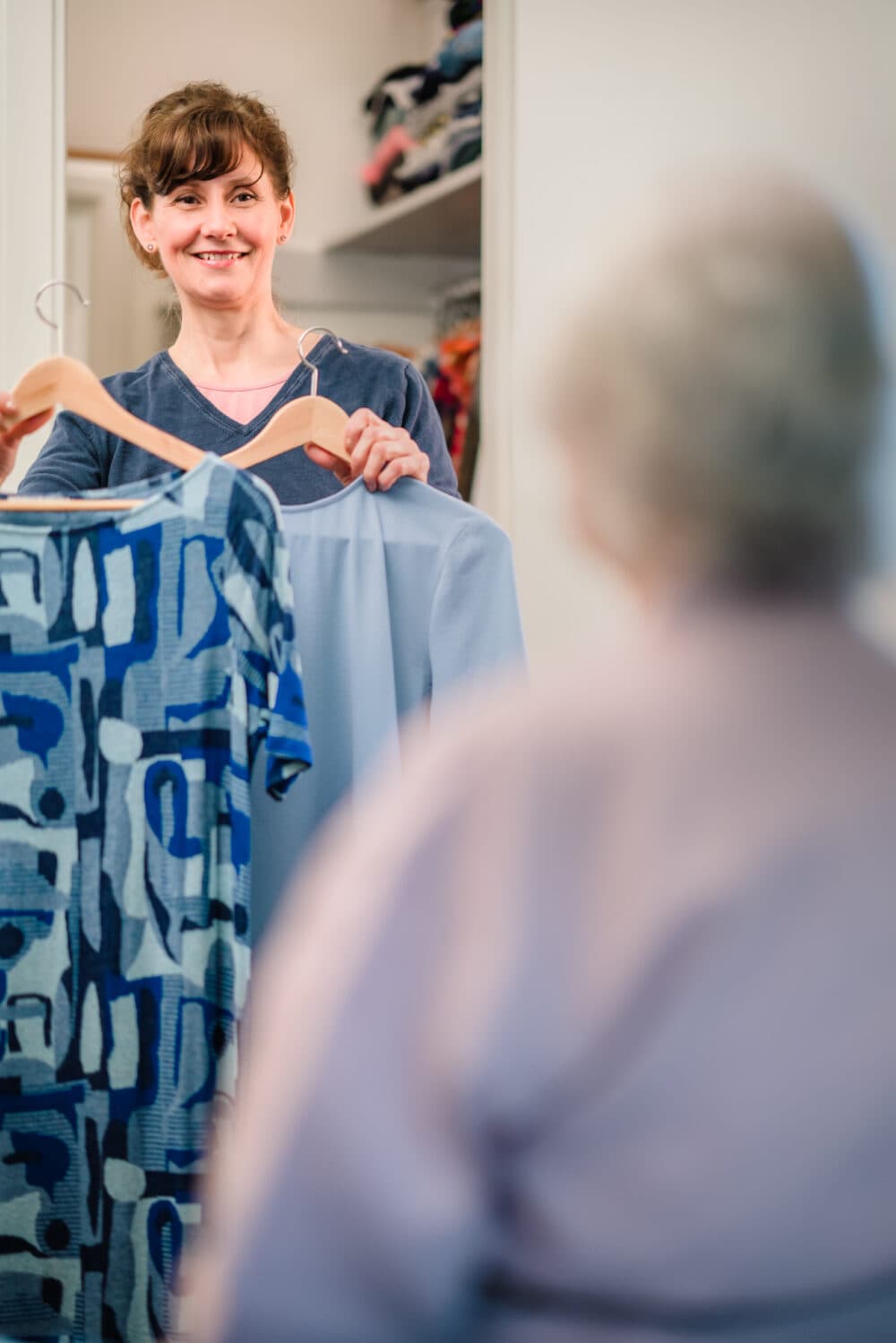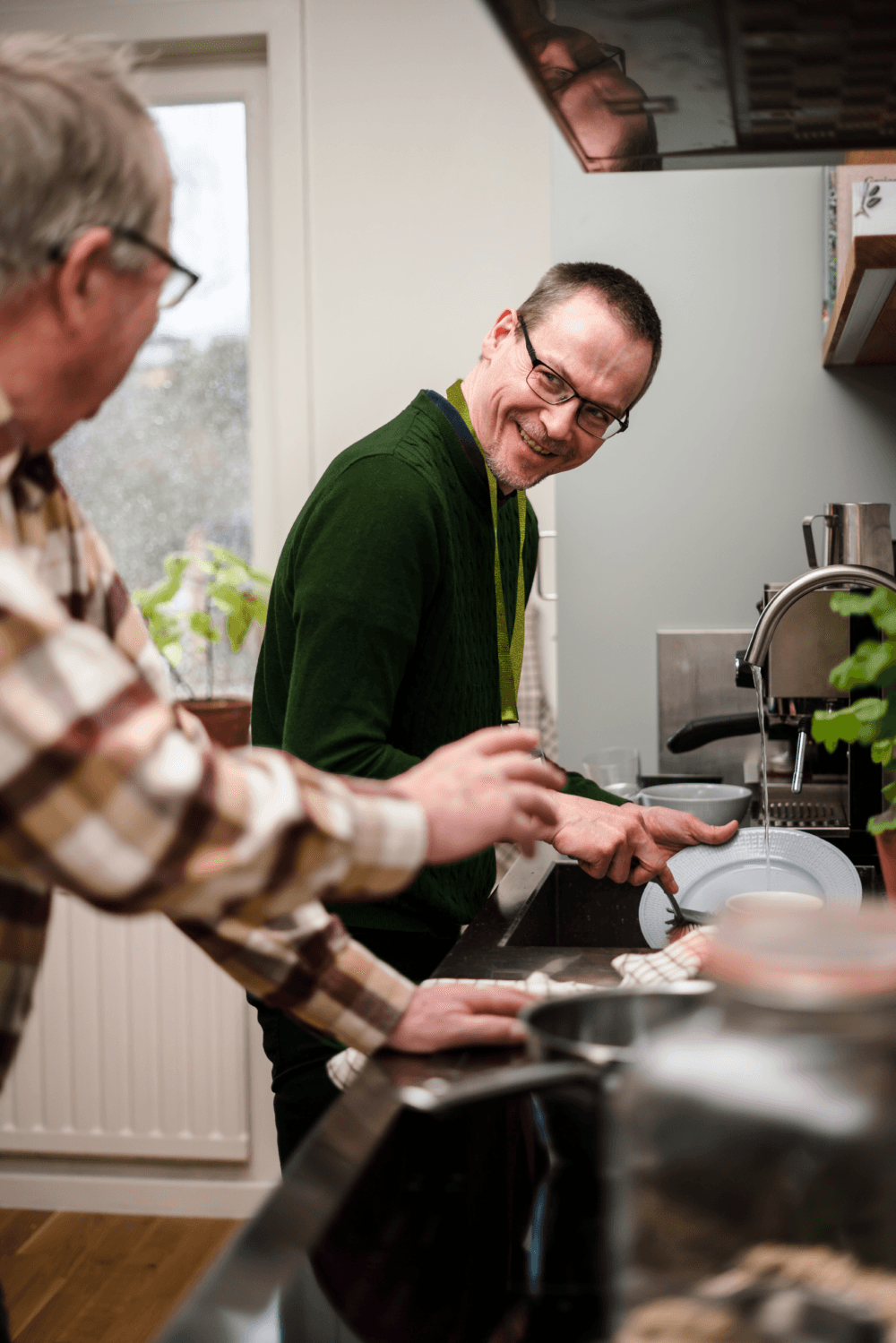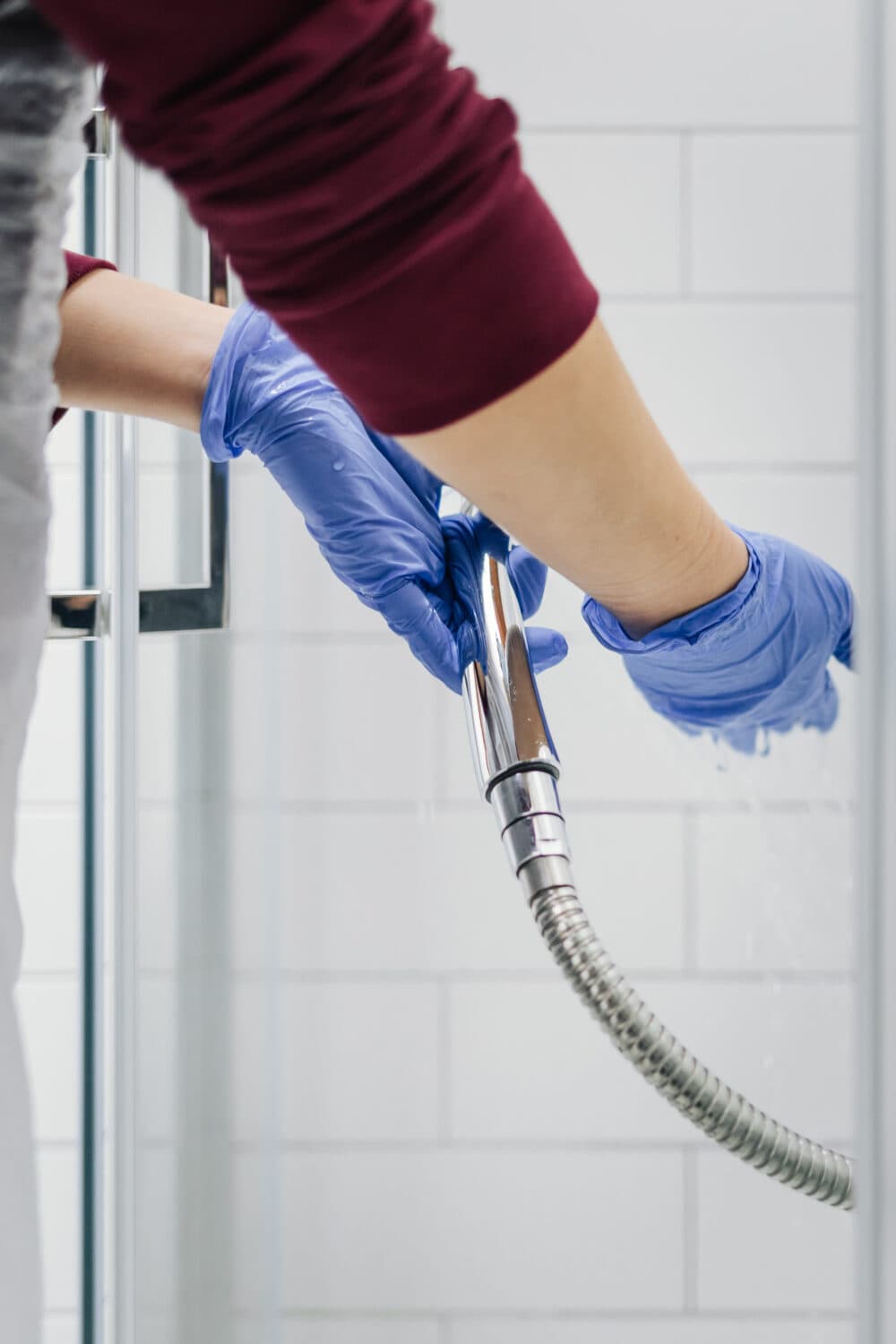Helping older adults with housekeeping

Providing help with housekeeping for older adults
Housekeeping can be a struggle for older adults who suffer from mobility issues, dexterity issues, or health problems that limit their physical or mental abilities. While home care can assist with personal care and other needs, it can also be helpful for keeping on top of general housework and other chores required throughout the week.
Here, we are exploring why housework can be such a challenge for older adults, how you can help your loved one with their housework, when it may be time to call in support or a professional home carer to help, how and why regular housekeeping support can be beneficial, what sort of housekeeping a home care professional may be able to provide, and how to sensitively broach this subject with your loved one.
At Home Instead, our aim is to help people age positively and in place by bringing expert care to their home. For nearly 20 years, we have been providing the highest standard of care, and creating industry-leading training programmes for our Care Professionals that are accredited by nursing and medical professionals. Today, we are the world’s largest global domiciliary care network, supporting over 100,000 older adults with personalised, tailored care at home. So whatever questions you have about home help and housekeeping for older adults, we can help.
What is meant by housekeeping and home help?
Housekeeping and home help typically refers to the maintenance and upkeep of the living spaces within an older person’s home to ensure cleanliness, tidiness and functionality, and to help them maintain their quality of life.
Housekeeping and home help may include tasks such as:
- Cleaning and disinfecting food preparation spaces
- Organising cupboards and wardrobes to make things simple to find
- Tidying away regularly used items
- Doing laundry loads, hanging clothes out to dry, and ironing
- Doing the dishes daily
- Dusting all surfaces in the home
- Vacuuming carpets or mopping floors
- Decluttering old items in storage spaces
- Emptying bins and ensuring they go out for local rubbish collection
- Less regular tasks like changing light bulbs, smoke detector batteries, or bedding
These are only a few of the regular housekeeping tasks that may be required, but professional housekeeping and home help will usually create a routine around these tasks and ensure everything is done to maintain and improve an older person’s quality of life in an efficient manner. Effective housekeeping can promote a sense of wellbeing, productivity and pride in a person’s home, and can create a welcoming and pleasant atmosphere for both the person living there and any visitors they have.

Why can housekeeping be a challenge for older adults?
As we age, physical and mental limitations can impact our ability to take care of our home effectively, and there are a number of reasons for this.
Mobility issues, joint pain or generally weaker muscles could lead to issues maintaining the home for older adults – this could be due to an illness, previous injury, a disability, a chronic condition, or simply general wear-and-tear with age. Even if an older person has the ability to carry out a certain physical cleaning task, they may lack the stamina to complete this on a regular basis due to fatigue, or the task could put them at an increased risk of injury, particularly if it involves lifting things, bending down or reaching up.
Eyesight issues can also affect older adults, so they may struggle to see or notice things like dust, food spatter, or small objects dropped on the floor. In addition to the physical challenges that come with ageing, cognitive decline and mental health issues can be a factor impacting an older person’s ability to maintain their home. Conditions affecting memory (such as dementia) could lead to a reduced ability to organise and pay attention to details. Also, conditions like depression could lead to them feeling overwhelmed or displaying apathy towards cleaning and tidying.
How can you help an older loved one with housekeeping?
If you visit an older loved one who is struggling with their housekeeping, there are a few things you can do to make this easier on them and support them in maintaining their home without affecting their independence.
- Identify which tasks they struggle with based on their personal limitations. For example, if they have dexterity issues due to arthritis they may find it difficult to clean certain areas of the home, but could still be perfectly capable of vacuuming. If this is the case, encourage them to focus on areas they can still manage, and if you are able and have time, chip in on elements of housekeeping they struggle with the most.
- Focus on tasks promoting safety in the home, such as clearing away clutter that could be a trip hazard, throwing away expired food, and disinfecting food preparation areas. If you are worried about falls, it can help to consult the Centers for Disease Control and Prevention Home Fall Prevention Checklist For Older Adults.
- Try to break tasks into manageable steps and prioritise areas of concern, such as making the most used areas of the house safer and more efficient.
- Consider what assistive devices or adaptive tools could be bought or installed to ease any physical strain. A good example of this could be a meal delivery service for an older adult who struggles with cooking. You can learn more in our guides to home adaptations for disabled older people, and how to get hot meals delivered at home.
- Schedule a regular deep clean (such as once a month) and make a list of the weekly maintenance tasks to be done in between.
- Provide gentle reminders for them to maintain areas they can still manage, and supervise any tasks they can still do, but that may be a higher risk for them.
- Place things around the home to encourage regular cleaning, such as disinfectant wipes on the kitchen counter, or small bins in every room.
- If your loved one has a memory condition such as dementia, help them set up reminders and labels around the home to prompt regular cleaning activities that they may forget about. It could also help to get them a clock with the day of the week on it to help them know which days to carry out certain tasks. You may find our guide to caring for someone with dementia at home helpful, too.
- Establish a regular housekeeping schedule, but make sure this time does not encroach on quality time with your loved one – if you think this could be an issue, consider bringing in a professional cleaner or home care to take this on instead.

When should you call in support for housekeeping?
It can be difficult to know when it is time to bring in professional cleaning support or home help. If you feel your health or mobility issues are causing housework to feel more and more difficult and tiring, or you are becoming more frustrated with housekeeping tasks, home help could be a great solution to ease this burden.
If you are worried your loved one may need home help, try to notice signs that they could be struggling such as dust around the home, wearing the same outfit too often without washing it, losing items amongst clutter, dishes piling up, accumulating rubbish, and anything else that suggests they may need help to manage daily and weekly cleaning and organising tasks. This is particularly important if you feel your loved one could be putting themselves in danger with things like unclean food preparation surfaces or clutter that causes a fall risk.
You can learn more about our home help and housekeeping service at Home Instead, or look for other local organisations or cleaning companies to provide the services you need.
How can regular home help be beneficial for older adults?
Regular home help has many benefits for older adults. For example:
- It helps them maintain their independence and continue living at home for as long as possible, without reducing their quality of life
- It can ease the physical pain or fatigue they experience when cleaning and organising
- It can enable them to rest more and recover from any illnesses or injuries they have
- It can remove the mental burden or anxiety some older people feel about keeping their home clean
- It can alleviate social isolation, as home help could also be someone to chat to while they clean, as well as helping them feel more comfortable having visitors over to their home, or having clean clothes to go out and meet friends
- It can have a positive impact on falls – according to NHS data, around 1 in 3 adults aged 65+, and half of people aged 80+ will have at least one fall a year, which could lead to injuries, broken bones or even death, so taking steps to prevent falls (such as reducing clutter in highly used areas) is important
- It can offer peace of mind to family members who may not have time to take on the housekeeping for their loved one

What sort of housekeeping tasks will a home care professional help with?
The housekeeping tasks provided by a home care professional will differ depending on the agency or organisation you use, but some examples could include:
- Washing dishes
- Dusting
- Vacuuming and mopping
- Changing beds
- Disinfecting bathrooms
- Taking out rubbish and adhering to the local bin collection schedule
- Organising clothes
- Meal preparation and cooking
- Doing laundry and ironing
- Grocery shopping and other errands
- Changing light bulbs or batteries in electronics
Most agencies will enable you to choose which services you need, so you can continue to maintain some areas of your home independently while getting help with the tasks you are no longer able to manage.
How can you bring up home help with your loved one?
The topic of home maintenance can be a difficult one to bring up with a loved one. Often people do not like to think they are incapable of doing things by themselves, or that their home may not be as clean as they would like to think. This can feel embarrassing to an older person who has always maintained their own home, so it is important to be sensitive to this when broaching the subject. Make sure they understand that you are bringing the issue up for their safety and wellbeing, and that you are not judging them.
You may find it helps to begin by expressing concerns for how continued housekeeping could be affecting their health and acknowledging any challenges they have brought up in the past. Reassure them that engaging the services of a home help organisation will ultimately make their life easier and improve their wellbeing, so they have more energy to do things they enjoy and spend quality time with loved ones.
Don’t forget to listen and consider their thoughts and feelings about this, as well as address any fears or reservations they may have. It could help to offer to be there for the first few cleaning sessions to facilitate a smooth transition with their home helper. At the end of the day, bringing in home help should be their decision, so it is important to make sure they feel comfortable with the arrangement.

If you feel you or a loved one could benefit from home help or housekeeping on a regular basis, and would like to discuss what assistance could be available, you can contact your local Home Instead office to find out what our friendly and experienced home helpers could assist you with.
We’re an award-winning home care provider and part of a worldwide organisation devoted to providing the highest-quality relationship-led care for older people in their own homes. Arranging care for yourself or your loved one shouldn’t be stressful, so whatever questions you would like answered, feel free to reach out to the Home Instead team to discuss your needs.